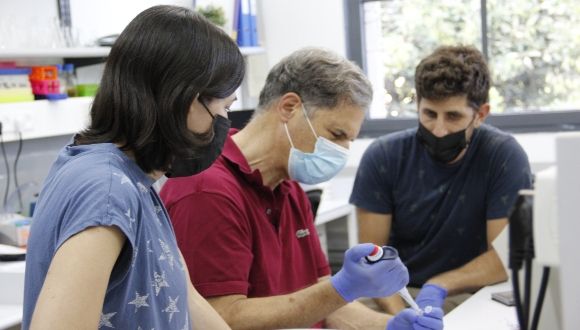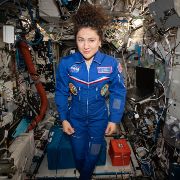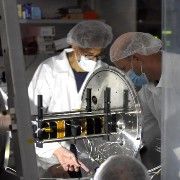TAU Brings Health Diagnostics to the Next Frontier: Space
As space exploration expands, how can astronauts with limited medical facilities protect their health with faster and more accurate detection of infection and other ailments?
To answer this question, Dr. Dudu Burstein of TAU’s Shmunis School of Biomedicine and Cancer Research will send CRISPR-based technology—best known as the breakthrough tool for genome editing—to the International Space Station (ISS).
Israeli astronaut Eytan Stibbe is slated to perform an experiment developed by Burstein’s team and partners at Israel’s Volcani Institute, to test the diagnostic capabilities of CRISPR systems in extraterrestrial conditions. It is one of several TAU innovations connected to the historic mission that will make Stibbe the second Israeli in space.
“Since these systems are compact and easy to use, they are ideal for detecting illness during long space missions, including future expeditions to the moon and Mars,” explains Burstein. “In addition, CRISPR may eventually be able to diagnose crop diseases in space farming.”
The Axiom Space Ax-1 mission led by Stibbe and the first all-private crew to the ISS was scheduled for launch on April 8.






